CAMP RAMADI, Iraq (April 23, 2010) -- Iraq's newest weapon against the ever-evolving improvised explosive device may be the guest never invited indoors: the dog.
One of Iraq's newest K-9 units, a five-man Anbar unit, stood up in March after the handlers completed a 45-day course at the Baghdad Police College. This new Iraqi unit often trains with a U.S. Army Military Police K-9 unit attached to 1st Advise and Assist Brigade, 82nd Airborne Division, at Camp Ramadi.
April 3, the new Iraqi unit located its first weapons cache -- a pod of artillery rounds and grenades buried in the foundation of a house in the Sophia area of east Ramadi.
"Elderly people, women and teenagers were watching us work," said Hussein Saadoun Kareem, a dog handler with the Iraqi unit. "They were very surprised to see us with dogs working. They had smiles on their faces."
With more than 220 million olfactory receptors, dogs, as compared to humans who have 5 million, have a highly-developed olfactory lobe and perennially wet nose to capture and dissolve scents; nature's intelligently-wired explosives detector.
It is said among Iraqis, however, that if a dog touches a serving dish, the dish must be scrubbed with sand and set in the sun for 40 days. Pet a dog after washing for prayer, and you must wash again, and scrub your whole body too.
But that doesn't make Iraqis "cat people."
"Growing up, I had many pet dogs," said Hussein.
"Dogs considered 'inside dogs' are kept in the yard or garden or upstairs on a third floor with no furniture. They don't really see the inside of the house," Hussein explained. "When we are done playing with the dog, we will take him back outside and chain him."
For Hussein and fellow dog handlers at the Ramadi Training Center, playtime with their canines is reserved for a very special occasion - tossing a dog his toy is the reward for finding explosives.
Three days after finding their first explosives cache, the K-9 members went on a joint mission with the Iraqi Special Weapons and Tactics unit and an Explosive Ordnance Disposal team. The K-9 unit was called to the Ameryiat Al Fallujah area where the handlers were briefed by Fallujah Police Chief Col. Mahmoud.
Two days prior, a 15-year-old boy had walked up to an Iraqi Army checkpoint and handed over a suicide belt to the Soldiers. He told them he could lead them to the two women who gave him the belt, along with instructions on how and what to blow up.
Kennel master Maj. Mohammad Ali Hamadi explained what happened next:
"The dog picked the woman out of a 10-woman line-up many times. Then I had her move to another place in case the smell was in the ground and she was innocent, but the dog kept indicating that the scent was coming from her - not only one dog, but three."
Hussein was one of the handlers on the case.
"They brought another older and younger woman in. He sniffed around them but came back to the first woman. She changed clothes, but the same thing happened," he said. "I [feel] like the wealthiest man on earth because of what we have achieved and the innocent lives we saved."
The dogs of the Anbar K-9 unit are typical of those used in the Iraqi K-9 program. Hussein's dog, Arko, is a boisterous, energetic German shepherd whose personality, his handler says, is "heroic." Even on his days off, Hussein visits his dog at the kennel.
Marco, the other, much larger shepherd, is handled by Mahmoud Shaker Slayman. Prior to this job, Slayman's only experience with dogs was hunting with hounds for deer and rabbits.
One of the newest handlers, Mahmoud Ismail Husain, is a bonafide dog person.
"I have always loved dogs," said the lanky 23-year-old from Ramadi. His dog, Bally, a Belgian malinois, mirrors the policeman's build - long-limbed, but not nearly as barrel-chested as the shepherds.
"When I laid eyes on him, I knew he was going to be my dog just from his stance. He was very athletic and hyper." Husain added with an affable smirk, "Bally is a troublemaker. When he gets hold of his toy, he doesn't let go. He makes me very tired."
The canine program is run by the Ministry of the Interior. The goal is to have 1,000 explosive detection dogs and handlers deployed across Iraq within five years. Anbar is scheduled to receive an additional 21 dogs and handlers.
"We need more soon," said kennel master Hamadi. "We are getting so many requests now it is hard to find time for training."
When they do train, they often are joined by members of the 82nd Airborne's K-9 unit.
"Their veterinarian comes and checks the dogs," said Hamadi. "He provides medication for the dogs and some supplies for our assistant veterinarian. Of course we will be able to continue when the Americans leave, though we will miss them. The support and the training they gave us will always stay with us," he said.
Though U.S. officials have long encouraged Iraqis to develop a K-9 corps to combat violent extremist's use of IEDs, response has been slow.
"The situation was not very suitable," surmised Husain. "The police were not ready. They did not have the desire to have working dogs. The people are still very surprised to see working dogs," he said. "But I encourage them not to fear the dog. 'He is a working dog, and he is here to protect our country,' I tell them. 'He doesn't bite - he finds explosives.'"
(Sgt. Michael J. MacLeod serves with 1/82 AAB, USD-C.)
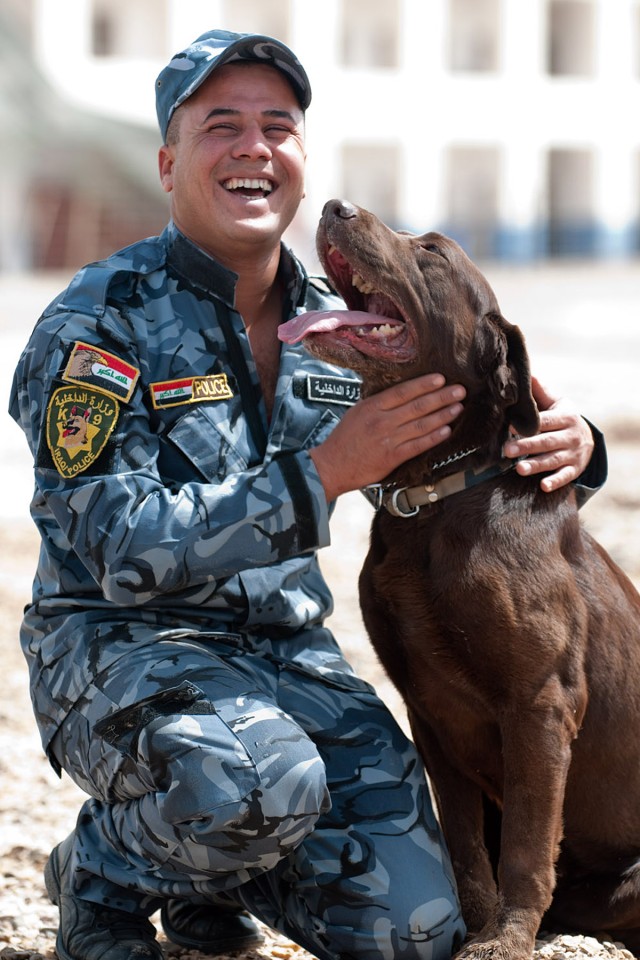
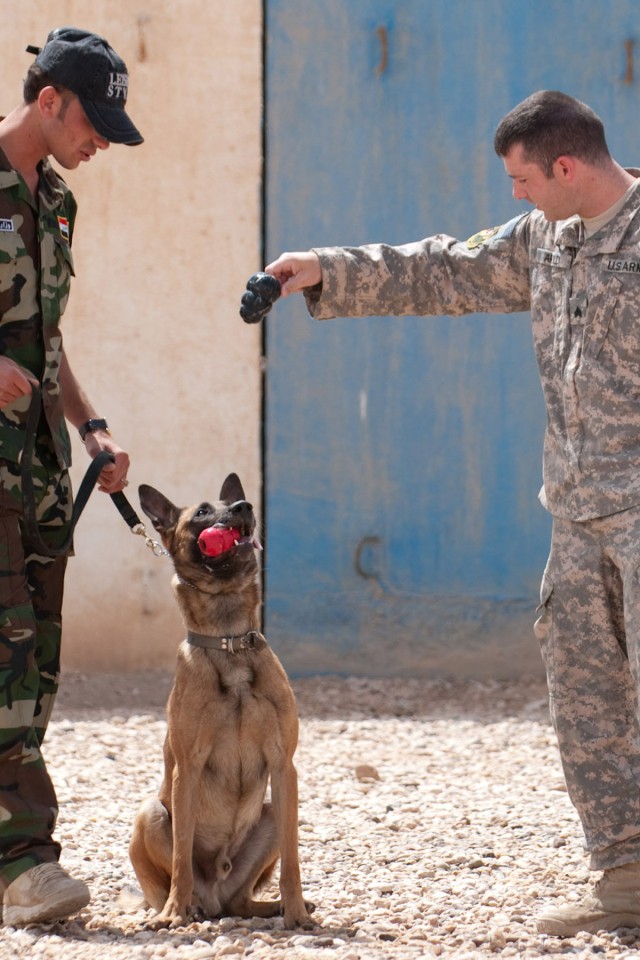
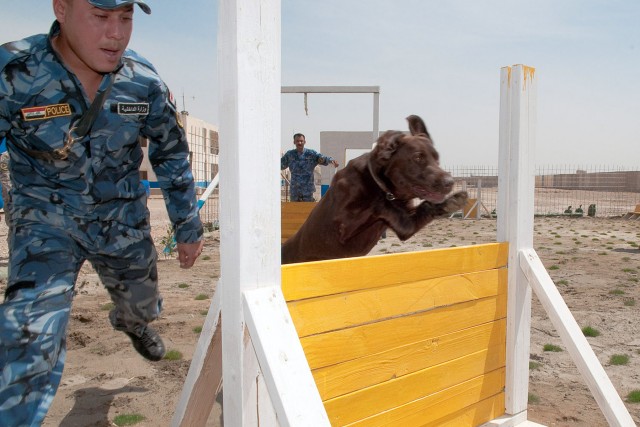
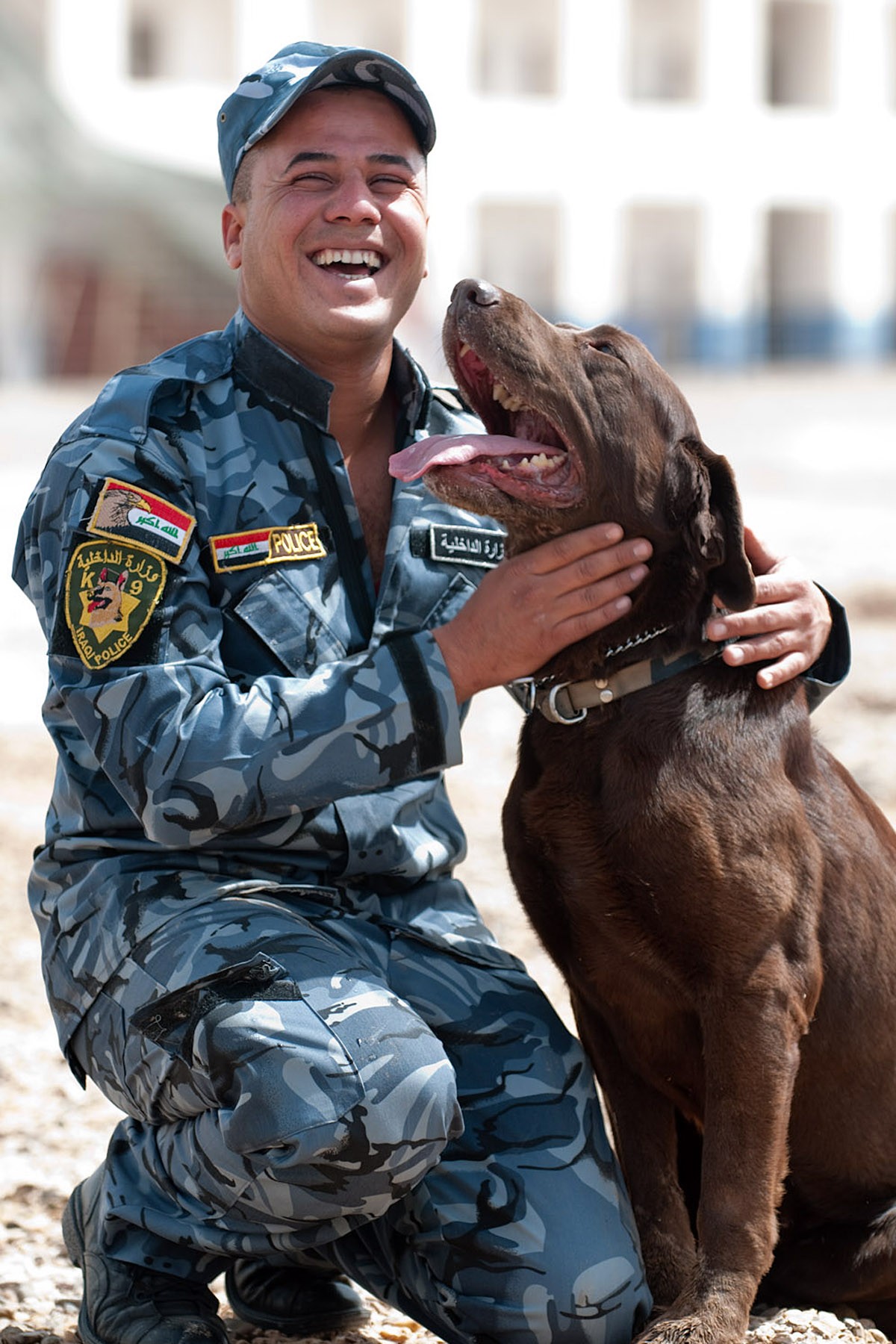
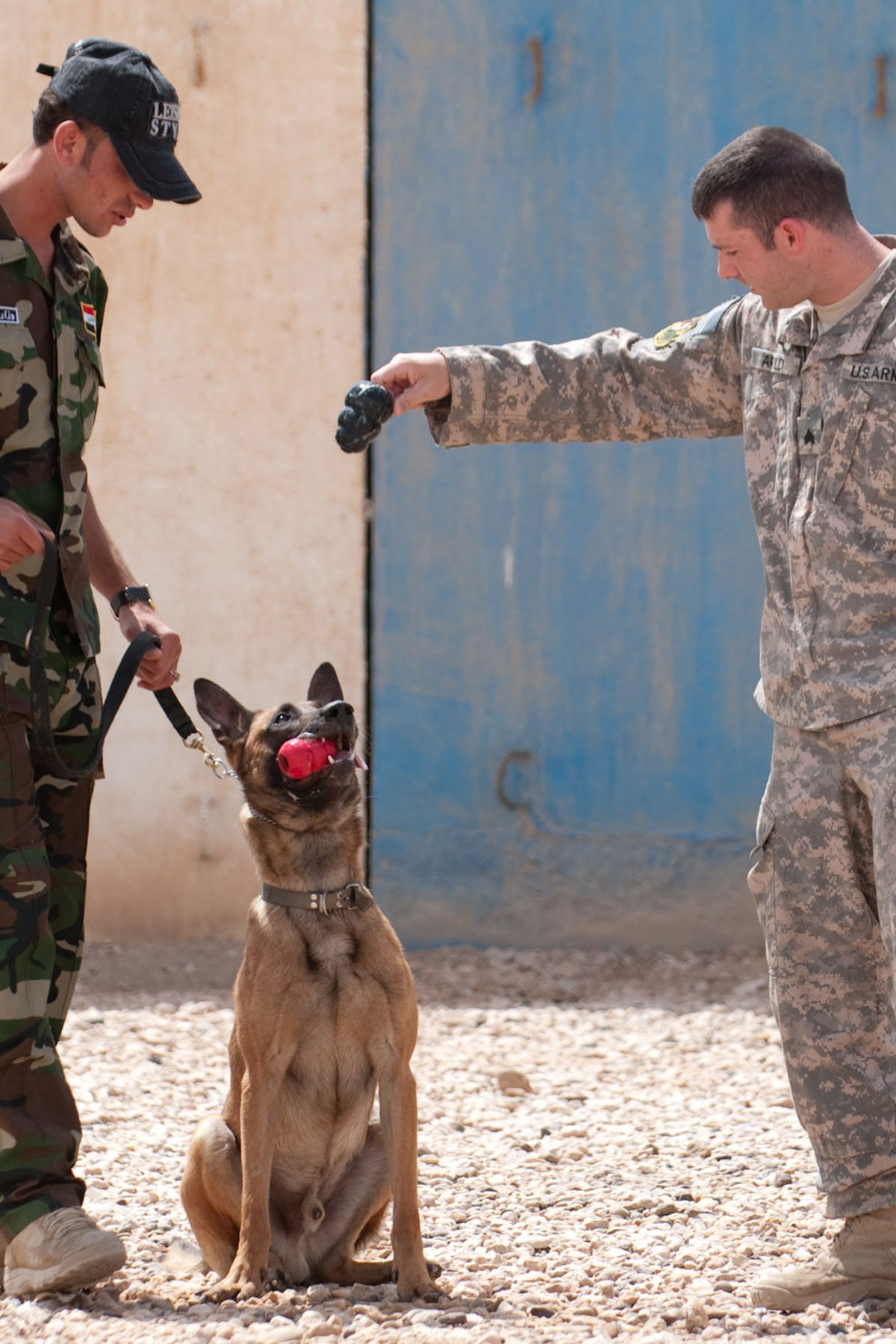
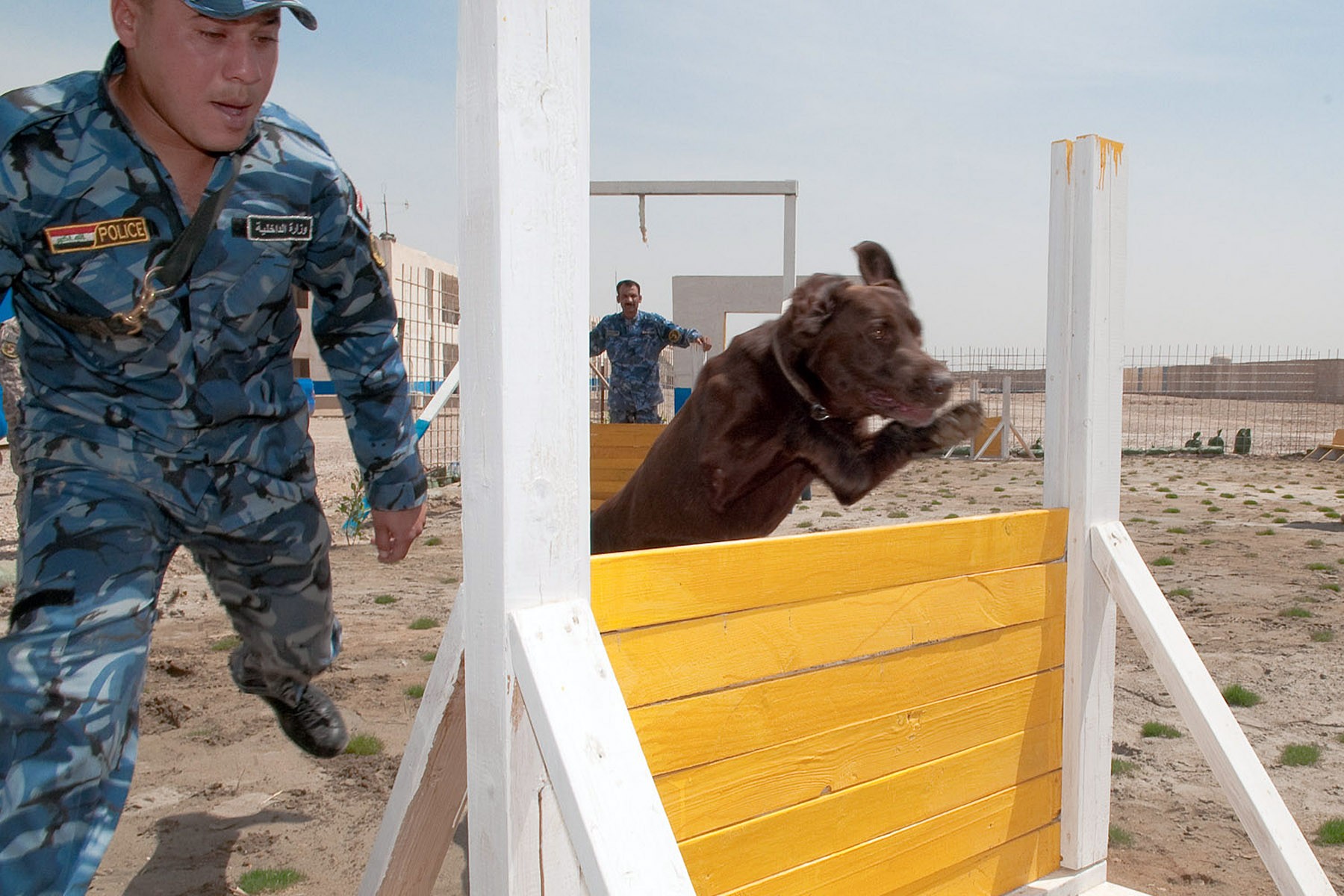
Social Sharing